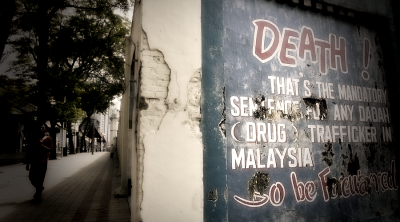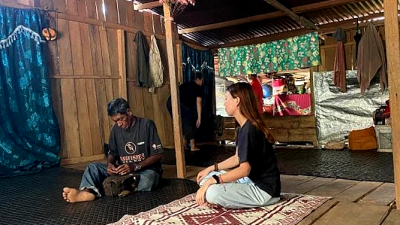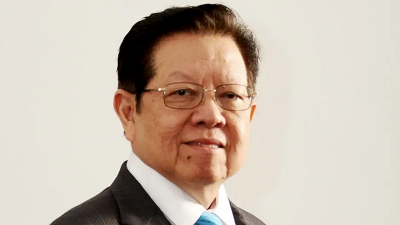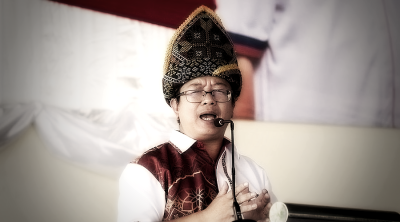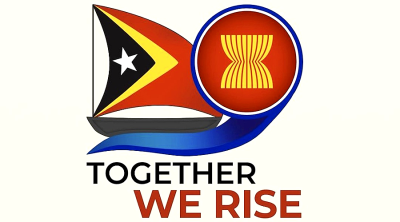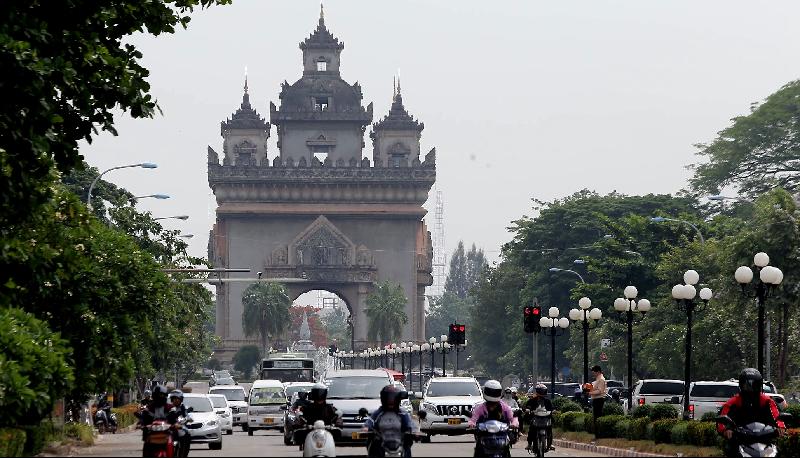
The first day we arrived in the Laotian capital of Vientiane, the city's commercial and financial thoroughfare Lan Xang Avenue was jam packed with traffic.
Many foreign banks set up their branches here, including Malaysia's Public Bank and Malayan Banking. You should not miss the Patuxai Monument that resembles Paris' Arc de Triomphe albeit with a strong Laotian cultural style.
Atop the monument are several pagodas and the wall reliefs are created mainly based on Laotian mythology.
It is said that the government used to pass an edict that all buildings in the vicinity of Patuxai must not be taller than the monument. However, the ban has been lifted in the last five years.
Some argue that if you have missed the opportunities to invest in Vietnam or Cambodia, Laos will be your last chance.
Jordan Pow jumped onto Laos's economic development bandwagon more than ten years ago when the country was still dirt poor and remained a mysterious hermit country.
Many of Pow's friends found it unbelievable when he shared his experience with them. Some haven't even heard of the country's name!
"Did you go to the Golden Triangle? Any hotel or restaurant there? Were you smuggling firearms there?"
Of course, his friends were just joking.
Curfew
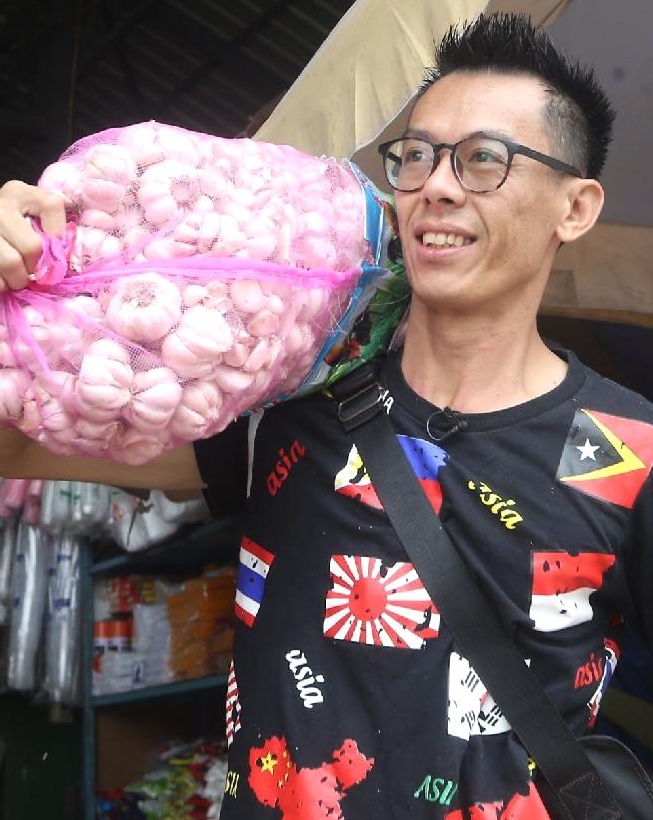
Life is moving very slowly in simplistic Laotian society and the people do not have high wages or consumption power.
Pow remembers that curfew was still imposed past ten o'clock every night more than ten years ago. Mini markets and restaurants only had a handful of customers while the locals had left long ago, leaving only tourists exploring alone in the streets.
"(Back then) they woke up at five and went to bed at nine. People here were very law-abiding and thefts were rarely heard of. Most importantly 95% of the people here were Buddhists. Very few Christians and Muslims here.
"But the country is very different today. There is a Chinatown here with several 24-hour convenience stores, and mini markets open until 12 midnight.
"There weren't any night spots in the past, but the government has given limited relaxation now, allowing some modern night joints to stay open until 1am the latest."
'Bak kut teh'
Pow first went to Luang Prabang in 2008, and started his business in Vientiane only four years later, setting up his King's Bird's Nest & Bak Kut Teh restaurant together with a cousin with a capital of RM400,000.
There wasn't any shop selling bird's nest or bak kut teh in town back in those days. He had a swiftlet farming business, coupled with the surge in the number of Chinese tourists to the country, he decided to offer steamed chicken in bird's nest soup and other desserts in his shop.
Pow said the shop's name was too long for the locals to remember, and many would just know it as "bak kut teh".
In view of this, after much consideration he decided to rename the restaurant "Four Seasons".
People familiar with the Thai language will not have much problem communicating with the local people here because of some similarity between the two languages.
It took Pow only a few moths to master the Lao language.
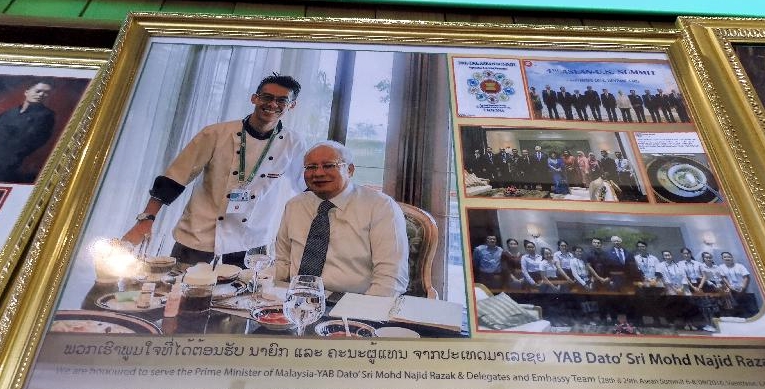
New challenges
Life was tough in Luang Prabang. In his third month here, Pow thought of giving up.
He used to work in 5- and 6-star hotels in Singapore and had learned from internationally renowned chefs. He also had the honor of hosting former US president Bill Clinton, former Chinese president Jiang Zemin and other world dignitaries.
It took him a lot of courage and resolution to back down from the international arena to work in a largely unknown place.
He was invited by his ex-boss to run his new hotel's F&B business in Luang Prabang. Out of a heart to try something new, he agreed.
Unfortunately, things did not turn out as he had anticipated.
"I need to teach the staff how to cook with an electric rice cooker because many of them had come from impoverished remote villages and had never used a fridge or rice cooker before. They only knew how to boil porridge!"
Pow had to start everything from the very basic and guided the staff step by step in kitchen.
"Luckily my boss told me we had to give them a chance, just as I did not know anything in the very beginning and my chef was willing to help me.
"I still choose to stay in Laos today because I also want to give other people chances with the hope they can change their lives."
Relocation of restaurant
In 2012, he started the restaurant business with his cousin near the Mekong River but in less than three years he met a serious crisis: the proprietor would not renew the lease.
Under the Laotian law, foreigners are not allowed to purchase land or shop lot and can only rent from the locals.
With only half a year to go, Pow had to rush to look for new premises but none that he was looking met his requirements, until a regular customer who came to know about his situation offered to help, so that he could have his Four Seasons Restaurant along Rue Pangkham today.
To make sure regular customers were aware of the relocation, Pow hired a new batch of workers to start operating from the new premises two months before the expiry of the existing shop's lease.
The new location was not facing the main road and not many would venture into the neighborhood to look for food. So he locked in to the office lunch crowd in the vicinity by developing some 30 new items on his menu such as nasi lemak, fried koay teow, curry noodle and some set meals to boost customer traffic.
Unlike today, Laos hardly had such a diverse range of foods back then, and Pow's restaurant boasted the country's first open-concept kitchen and the first to introduce Malaysian fares.
These selling points had drawn the attention of the media and TV stations, and the restaurant slowly gained in popularity. Due to his culinary experience, he managed to secure orders from local companies as well as tour groups, including several functions hosted by the Malaysian Embassy.
Adaption to local lifestyle
Pow was married in 2016 and now has a 2-year-old child.
"I never thought of giving up my Malaysian citizenship. Actually it is getting very convenient nowadays and I can just book a flight ticket home any time I want."
Laos is a matriarchal society and to wed a Laotian woman, Pow must be ready to accept a long-standing tradition: to move into the wife's family house.
"This is to allow the in-law family to know more about me, including work nature, characters and background. The man can always buy a house near the in-law's house after three months of staying together, if he has the financial capability."
The next morning, we followed Pow to walk into Vientiane's largest Tong Khan Kam morning market. He appeared to be well familiar with the local fruits and could give us a detailed introduction to their native producing regions. To him, monitoring market prices is an essential routine in his restaurant business.
"Prices can vary a lot seasonally. Cabbage could be RM1 per kg today and RM10 the next morning. So we need to come out and study the market prices, and use only seasonal ingredients to serve the gluttons."
He also said ingredients could be modified owing to local availability and to suit the local taste buds. As such, he would introduce some Laotian elements into his Malaysian menu, such as providing vinegar, sugar and chilli on the table for individual customer's taste customization.
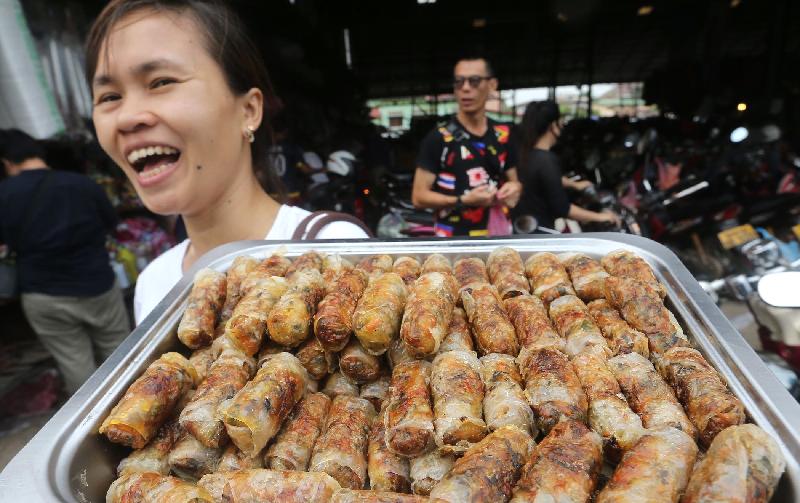
ADVERTISEMENT
ADVERTISEMENT







